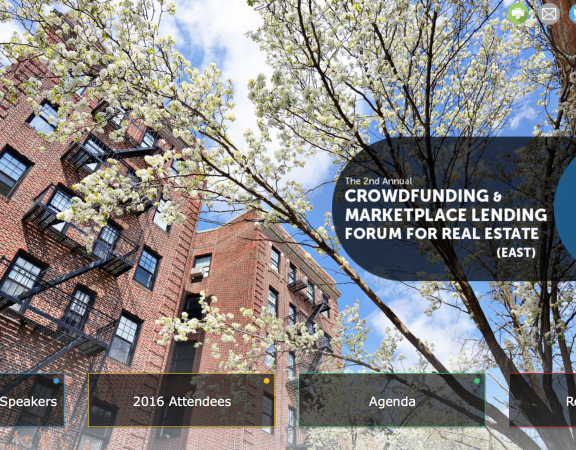Real estate investing has always been the game of the rich. The amount of money required to get in on any of these deals has always been limited to those with deep pockets. This so-called “country club mentality” has begun to change with the introduction of real estate crowdfunding that puts more investors on a somewhat more even playing field. These are 5 reasons that real estate crowdfunding is quickly becoming the end of the “country club mentality” and the beginning to new opportunities for many investors.
- Legislation – The Cornell University Baker Program in Real Estate credits the rise in popularity of real estate crowdfunding to technology and Legislative change. When President Obama signed the JOBS act into law in 2012, small businesses gained the right to receive equity in exchange for funding. From the time immediately afterward, large numbers of businesses, the majority of which are classified as small, have been utilizing crowdfunding. Although crowdfunding is not an entirely new concept, the change in laws has certainly sparked a significant amount of growth. Once a project is posted and an investor has the means to meet the minimum, they have the option to do so.
- Technology – Technology is indeed a large reason that the “Country Club” mentality is coming to an end. Without the advent of the Internet, real estate crowdfunding would not be experiencing the high rate of popularity growth that it is. Crowdfunding websites allow investors, managers, developers and sellers to communicate. Each website has its own set of specifications about how investments are presented and made, along with focuses on different criteria.
In addition to smaller, locally-focused websites, there are also larger ones that have investment properties available across the country. These are further broken down into two categories including the platforms and syndicators. Platforms are focused on connecting the project designers with smaller investors. Both types of platforms have seen tremendous growth.
- Smaller Initial Investment – Investing in real estate used to mean having large sums of money available before you could even get your foot in the door. Properties worth millions required big dollar amounts that the average Joe didn’t have. Crowdfunding has opened the doors for those with less available cash by increasing the number of investors on any given project. The idea of getting less money from more investors has worked to the investor’s advantage. Now, someone with only a minimum investment can choose a project that is worth millions and get their small piece of the pie.
The potential to invest less into a single project has also increased the number of investors who are able to buy into multiple properties at one time. Today, you don’t have to be rich to have investments in a number of real estate projects at one time.
As pointed out by Forbes, the investments of $50,000 to $100,000 often required in real estate are more than those who have the funds want to invest on a single property. Investors at any level want to see a profit. Metaphorically “putting all their eggs in one basket” goes against their common philosophy of diversifying any investment to reduce risk. Crowdfunding puts investors from various income levels on equal footing with regards to their ability to invest in a number of projects with the funds they already have.
- No Time Investment – Buying real estate used to mean taking care of any needed maintenance and repairs, along with other management-related responsibilities. Once the initial investment was made, the property still required repeated investments of time and money. Investors who might have to strongly limit their cash flow by merely making the initial investment might have nothing left to contribute. Crowdfunding is handled differently. The investment of the crowd includes a budget that covers all of the management and repair needs of the property. The investor gets all of the perks of real estate ownership without any of the hassles associated with upkeep. So, no more toilets, tenants and trash.
- Puts Investors on Equal Footing – People who have the “country club mentality” also have something else that the average guy doesn’t; connections. Most entrepreneurs have their own networks including lenders that they turn to whenever a good investment opportunity arises. They also have the first look at potential investments that are right for them. Crowdfunding gives every investor the same advantages that are needed to succeed. Projects are made available online where a large number of investors can invest in the same one. The real estate company doesn’t have to beg to banks or other financial institutions to get the money that is needed and all investors have the same investment options available to them.
As long as investors continue to see the potential in real estate crowdfunding, the growth of the industry is expected to continue as well. The investment platform that has brought about the end of the country club mentality has been predicted by numerous experts to be the investment path of the future. No other investment platform offers so many advantages to the developer, manager, seller and investor while also reducing risk.
It should come as no surprise that an investment strategy that provides access to the coveted real estate market for anyone who wants to try would be such a success that it would change the mentality surrounding it for so long. No longer is real estate an investment option that only those on Wall Street can comprehend but one that has become open to people in all walks of life and social classes.
The number of websites promoting crowdfunding continues to grow, along with the number of investors who are benefiting from them. Although it may still take money to make money, it no longer takes the kind of cash that only members of the country club have readily available. Real Estate crowdfunding has become the investing platform that is just as well-matched to the hard-working average guy as it is to a millionaire.
Matthew Sullivan
Matthew is the founder and CEO of Crowdventure.com, a real estate crowdfunding platform.






